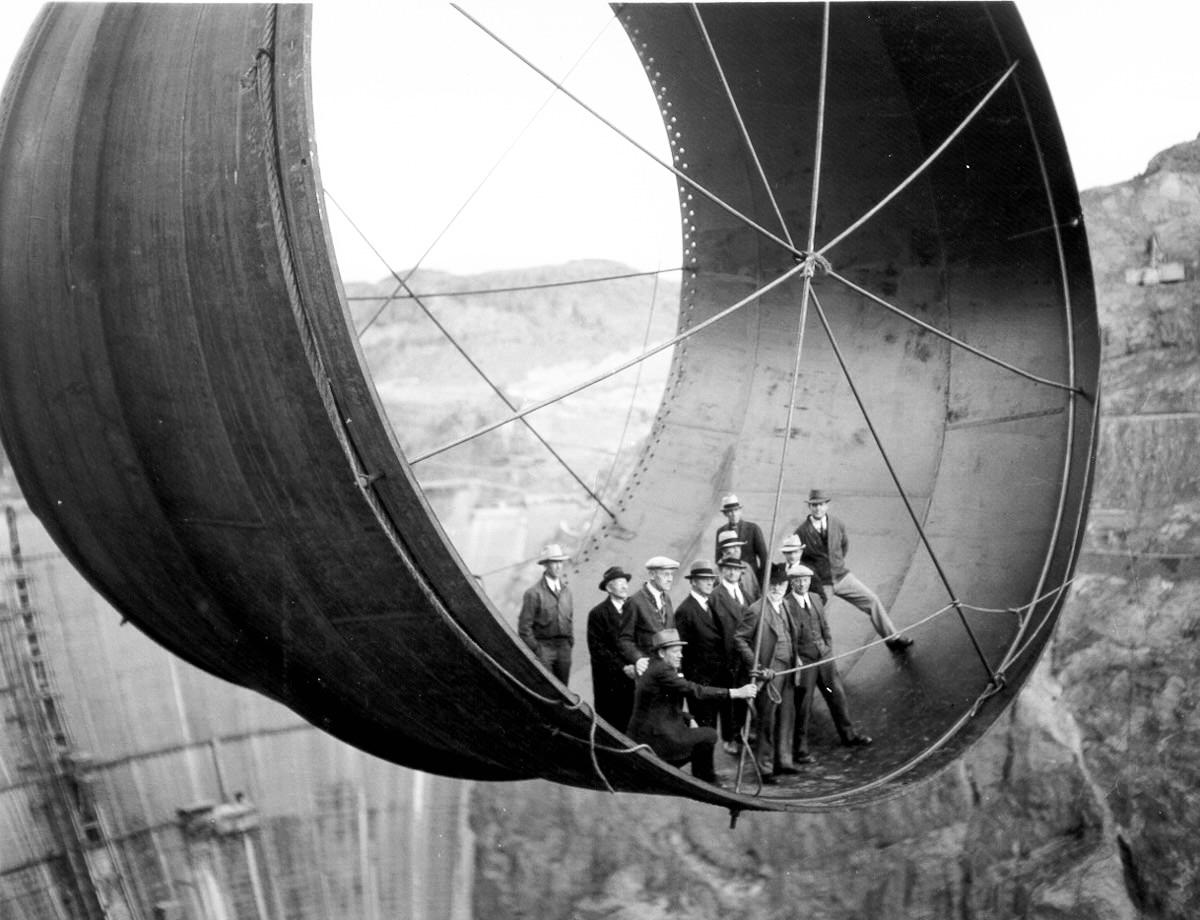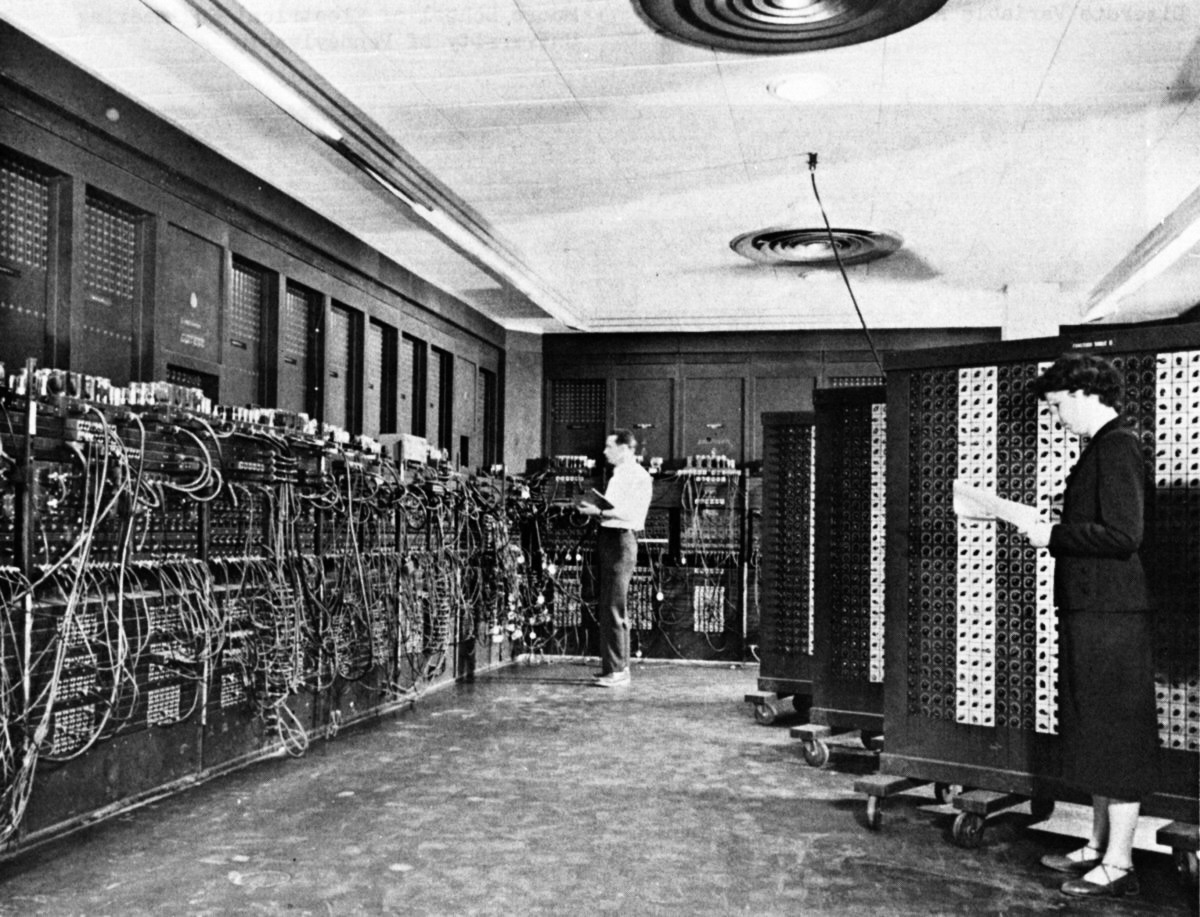In Defense of Growth and Capitalism
Progression, not regression: a complete refutation of Degrowth.

“Degrowth is an idea that critiques the global capitalist system which pursues growth at all costs, causing human exploitation and environmental destruction.
The degrowth movement of activists and researchers advocates for societies that prioritize social and ecological well-being instead of corporate profits, over-production and excess consumption.
This requires radical redistribution, reduction in the material size of the global economy, and a shift in common values towards care, solidarity and autonomy.
Degrowth means transforming societies to ensure environmental justice and a good life for all within planetary boundaries.”
Introduction
The core ideology behind Degrowth is that we should stop in our tracks, turn back the clock, and revert to a time where living conditions were depressingly poor, to somehow ‘fix’ climate change. It’s a perspective that looks down on progress, even deems it unwelcome.
This vision of society celebrates poverty as a badge of honor, and views restrictions on freedom as a positive, essential even. Within this worldview, children, who are nothing short of miracles breathing life into our world, are viewed as liabilities, exacerbating what they perceive as an overpopulation crisis.
Degrowth calls for a centralized power to dictate where progress can and cannot take place, effectively deciding who receives resources and who does not. It’s a system that inherently demands compliance, strongly resembling communism.
Some Degrowth advocates pretend that it’s possible to degrow the economy without centralized power and authoritarian tactics, because “everyone would willingly participate”. We will go over this argument later in this piece, but for now, the fact that I’m writing this already proves the contrary.
Degrowth and authoritarianism, dictatorships, even world government, are all part of the same melody. Because if even one subset of the world’s population doesn’t participate and continues growing, that could cause sufficient pollution to keep climate change going on.
Advocates of Degrowth dress up their rhetoric with appealing terms like ‘harmony’, ‘well-being’, and ‘sustainability’. But don’t be duped. Their intentions may be well-meaning, but the aftermath of degrowth would be catastrophic.
When the pie isn’t getting larger, my share getting larger means yours is getting smaller, opening the door towards conflict. Corruption, violence, and oppression prevail in zero-sum negative-sum societies – a stark contrast with “harmony”, “well-being”, and “sustainability”.
No overconsumption or overproduction
A common critique of Capitalism is that it leads to overconsumption and overproduction. But that is evidently wrong.
Of course, there are instances where true overconsumption transpires. Like when you’re at a restaurant and you order more than you can eat, resulting in wasted food. But this form of wastage isn’t applauded by Capitalism, it’s penalized.
You’ve wasted resources – you’ve lost money. If you’d been more attuned to your actual appetite, you’d have ordered wisely, saved money, and still been perfectly sated. Hence, Capitalism subtly nudges you towards precise consumption - not more, not less.
The same applies to corporations. If a business overproduces, the surplus stock piles up, unsold. This is a clear cut loss, a monetary penalty, prompting them to match production to the demand. Capitalism, in essence, incentivizes companies to manufacture what the market necessitates, no more, no less.
Those subscribing to the Degrowth doctrine often misinterpret the utility of products, suggesting that several commodities lack intrinsic value and, hence, shouldn’t be produced. But the notion of utility is subjective.
The market responds to consumer demand. If someone is willing to pay money for a product, it is, by definition, useful to them. If the product isn’t beneficial to anyone, it won’t find a buyer, inflicting financial losses on the company, potentially pushing it to the brink of bankruptcy.
In case of underproduction, meaning when a company is unable to meet the demands of the market in terms of product supply, the market directly incentivizes a competitor to emerge and offer a competing product, through the market’s unmet demand.
Because of these reasons, it’s fair to conclude that Capitalism denotes ‘right-sized’ consumption and production. Whenever there’s a misstep, a tilt towards the excess or the insufficient, the unforgiving but fair hand of the market steps in to administer a course correction.

No one would willingly participate in Degrowth
A common theme among alternatives to Capitalism is their lack of pragmatism. The critique that is often used against the argument that Degrowth requires centralized power, is that the population will somehow willingly take part in it.
As if nations like China, India, and Nigeria would willingly limit their growth, and settle for poor living conditions, all because of climate change? They wouldn’t, and frankly, if we were in their shoes, we would feel exactly the same way. Our ancestors lived incredibly poorly compared to how we live now, after all.
But even if they aren’t in the shoes of third-world countries, the vast majority of people continue living as they have always done. Prior to the pandemic, despite all the climate protests, the number of passengers flying globally and travelling on cruises only increased year after year.
While some may vocally support Degrowth, it’s only rarely reflected in their actions. Degrowth for thee, not for me.
This also applies to governments, who have been attending COP conferences to discuss climate change solutions and virtue signal about their “initiatives” since 1995, while carbon emissions have only been increasing since then.
Interestingly, in the past ten years, they have remained stable or very slightly decreased for the USA, a capitalistic country, whereas they have increased for China, a socialist country. And the USA didn’t just outsource its carbon emissions to China, like it’s commonly believed.
Countries like China are not game theoretically incentivized to care about climate change. They are incentivized to grow as much as possible. We wouldn’t behave any differently if we were in their shoes, and you can protest as much as you like, China won’t stop growing.
Happiness is not a valid argument
Degrowth advocates often point out that economic growth does not necessarily translate into happiness.
This might seem like a valid argument at first sight, but it’s not. Economic decline doesn’t “necessarily” translate into happiness either.
The truth is that there is no way to reliably know what does or does not increase happiness, given there is no way to reliably measure happiness in the first place.
Self-reporting, which is often used by studies supposedly “measuring” happiness, is very much prone to cultural standards.
Finland, often cited by studies supposedly measuring happiness as one of the happiest countries in the world, has anecdotally also a relatively high suicide rate. One would expect happy people to not kill themselves, and yet…
Different cultures have different definitions of happiness, and within these cultures, definitions of happiness vary too. What happiness may mean for Degrowth proponents may not be what it means for me.
A hedonist may define happiness as finding pleasure in the little things, while a Buddhist may define it as being at peace. Because the definitions for happiness vary so much, it’s incredibly hard, if not impossible, to create a system that optimizes for happiness.
The conclusion is simple: happiness is not a valid argument in this debate.
However, what is a valid argument, is that there is there is absolutely no virtue in poverty and that it inevitably leads to unhappiness.

The overpopulation myth
A popular meme in today’s society is that we are too many on the planet. This is apparently so-called “common sense”. The argument often used to defend this misconception is that there are supposedly not enough resources for everyone.
But that misses the point. The issue isn’t a deficit of physical resources; it’s a shortage of knowledge.
Consider Uranium, for instance. Before we understood its potential, it was just another raw material buried deep in the earth. The physical resource existed, but our ignorance rendered it useless.
Then, science moved forward, technology evolved, and suddenly we found ourselves with a powerful source of energy. Just like that, Uranium was no longer an inert element but a real game-changer for the world.
We’re not limited by what we have, we’re only limited by what we know.
There’s a myriad of undiscovered methods to utilize existing resources to generate more energy, food, and other necessities. Similarly, there’s an abundance of untapped potential to enhance our present resource utilization strategies.
This is where the population doom-mongers falter, assuming that our usage and efficiency of resources are static. But given the same physical resources we possess today, we can generate more food, water, energy, and so on tomorrow.
In fact, a larger population would result in more demand for food, water, energy, and other basic needs, resulting in an increased incentive to invent new ways to solve these problems (or improve current ones). The market adapts itself to supply and demand in real time, one of the beautiful aspects of our capitalistic system.
More people on the planet means more humans who get the chance of experiencing the beauty of life, more creative minds, more inventions, more technological breakthroughs, etc. This a net positive for the world! It’s wonderful.
Let’s not forget we could theoretically store the entire human population in a cube of side 1.07km, there is a lot of room on the planet.
Capitalism isn’t burning the planet
Capitalism cannot burn the planet, it’s an economic system. Nor is the planet burning, the climate is changing.
The argument often used against Capitalism in this situation is the fact that it creates incentives for people to care about their benefit in the short-term, but at a long-term detriment for the climate.
That may be right, but by that same argument, it should also incentivize people to build technologies that will counter climate change nowadays, as there is demand for it. That’s also what is happening. Tesla and hundreds of climate tech companies being an example of that.
Too often, people also forget that Capitalism led to the creation of nuclear power plants, one of the best solutions to prevent climate change. Except the left has for decades been fully against it, citing irrational safety risks.
Those citing the Chernobyl and Fukushima disasters to justify the safety risks actually prove the opposite: in both cases, bad human decision making was the cause. The plant operators at Chernobyl violated safety protocols, leading to a catastrophic explosion.
As for Fukushima, the plant was built in a region at risk of tsunamis, making the accident entirely preventable. Also worth noting both power plants were built in the early 70s, over fifty years ago. The technology has evolved tremendously since then.
As for nuclear waste, there has been a lot of exaggeration regarding how problematic it is. You could store all of the nuclear waste generated by the US on a yearly basis, in less than half the volume of an Olympic-sized swimming pool. The nuclear plants generating that waste power 70 million homes in the US.
It’s objectively a reasonable tradeoff. And while we currently have no idea on how to recycle the most toxic nuclear waste, we will inevitably eventually find out how to do so. There isn’t a law of physics preventing it, after all.
Due to the paranoia of “environmentalists” against nuclear energy, governments made it incredibly hard to build new power plants, even closing ones which functioned perfectly well.
It’s now so expensive to build a nuclear power plant due to all the bureaucratic processes surrounding it, that it’s nearly not even profitable anymore, and takes a decade or more for it to start producing energy. “Environmentalists” are at fault here, not Capitalism.
The irony being that the ones who created this terrible situation (“environmentalists”) are the ones now blaming the system that brought the solution (Capitalism) for causing climate change.
Instead, “environmentalists” have been pushing wind and solar energy, which only work when there is wind and sun respectively. What happens at night, when there is no wind? No electricity?
Also worth mentioning that communism wasn’t kind towards the environment either, to say the least.
The point being that climate change isn’t an unsolvable problem. It’s a technological challenge, and we’re fully capable of tackling it. We already have several tools at our disposal like nuclear energy, and in the meantime, hundreds of new solutions are being developed to help prevent and counter it.

Wealth inequality isn’t a problem
Another point that Degrowth proponents like to bring into light is the rising wealth inequality, which they attribute to our growth-oriented economy.
However, wealth inequality is not a problem. Wealth equality is a synonym for equality of outcome, which on top of having communistic undertone to it, is simply evil. If someone works both harder and smarter than I do, creating more wealth for society, it’s only fair that they should earn more.
The real problem is not wealth inequality, it’s inequality of opportunity. And that problem is independent of whether or not a society is growing or declining. Or is it?
There is in fact an argument to be made that growth and technological innovation are the solution for the opportunity inequality problem.
The printing press revolutionized how knowledge was disseminated, transforming it from a privilege to a right. The advent of the internet took that democratization a step further, making information ubiquitously accessible and enabling global communication. It birthed the era of remote work.
The rise of crypto will equalize the playing field in the financial world, massively reducing financial inequality of opportunity. Someone in Africa can use the same crypto lending protocol to have access to cash like a hedge fund manager can in Switzerland.
As for AR/VR, it is dissolving the constraints of physical location. As these developments continue, we get closer and closer to a world where an individual in India will have an equal shot at the same job opportunities as their counterpart in the US. Bit by bit, technology is breaking down barriers and creating a more equitable landscape.
And the issue of wealth inequality, even if we were to accept it as a legitimate problem, has been progressively diminishing over the past several centuries.
Just compare the average peasant’s life during Louis XIV’s reign, which was made out of hardship and poverty, to the opulence of the royal court at Versailles.
Peasants (the majority of the population) mostly ate bread, about 40% owned little to not land, and they typically lived in one or two room houses in rural areas and their lifestyle was mostly agrarian. They sometimes shared their living space with their animals, and faced starvation in case of a poor harvest. Parents and children slept in the same room.
In contrast, Louis XIV ordered the construction of the Palais de Versailles, with hundreds of luxurious rooms, magnificent gardens with fountains, and countless paintings and statues. He had jewelry, clothing made out of delicate fabrics like silk and velvet, without forgetting the wigs of course. He had access to the finest meats, fruits, vegetables, wines, etc. And he could travel anywhere he wanted across France with the most comfortable carriages and the best horses.
The average peasant, meaning the vast majority of the population, had none of that. And that’s without mentioning the nearly 48% risk of infant mortality at that time. If you had ten children, about five would die before reaching age 15.
Today, Jeff Bezos may be stratospherically wealthier than you in terms of nominal wealth, the digits showing up in your bank account. But when it comes to material wealth, the disparity isn’t so wide.
You probably have a smartphone, just like Bezos has. You probably have a car, just like Bezos has. You probably have heating in your home, just like Bezos’ has. You probably don’t have a yacht yet, like he has, or a private jet, but these will come in due time as the costs of these technologies go down. He will likely also get a better healthcare experience if he catches a disease, but the core treatment will probably be very similar to what you would get if you caught that disease.
Some will point towards developing countries where there is still extreme poverty. But the problem in that case is extreme poverty, a form of inequality of opportunity, not wealth inequality. You could have more wealth inequality, with no extreme poverty.
Degrowth is very dangerous geopolitically
Something which is rarely (never) covered by Degrowth advocates is the geopolitical risks that it brings to the table.
This is where the naivety of some of the Degrowth advocates really comes into light, as they propose the idea of slowing down the economies of first-world countries to allow third-world countries to continue growing.
But if a foreign power doesn’t limit its growth, while your country does, that foreign power’s military will grow stronger compared to yours, posing a risk to national security.
While it’s been a while, thankfully, since the West has been at actual war (leaving the proxy wars and cold wars aside for a minute), this isn’t a fairy tale world.
Forget ‘harmony’, ‘well-being’, and ‘sustainability’. The iron rule of history is the rule of violence. The only logic tyrants understand is the logic of violence, and without a strong defense, the West would get immediately invaded.
Additionally, being a pacifist doesn’t mean that you shouldn’t defend yourself against the enemy, on the contrary. It’s not about being “peaceful”, it’s about protecting peace. If that requires violence because others threaten peace, then so be it.
Having a strong defense also unironically acts as a war deterrent, as the enemy will be less likely to attack you. We should invest more in defense, not less.

Communist? There’s nothing stopping you
Contrary to communism, where you are forced to conform and cannot be a Capitalist, there is nothing stopping you from being a communist in a Capitalist country.
The hypocrisy of the extreme left on that front is unbearable to say the least. If you are communist, embody that ideology and live in a commune. Have some skin in the game.
It’s bad ethics to criticize a system and state that it’s the root of all evil, while simulataneously profiting from it and keep participating in it. You have the choice. If Capitalism is really that bad, go live in a commune.
People have done it in the past, though, and weirdly enough (please pardon my irony), they no longer do. The Kibbutzim are an example of that. Up until the 1970s, they were essentially communist.
Needless to say the majority them since then have become privatized and are fully capitalistic nowadays. They had to, in order to prevent financial collapse. It turns out that ignoring economic realities is unsustainable.
If your alternative to the present system is really better, try it. Capitalism grants you that liberty.
The US isn’t proof that Capitalism doesn’t work
When discussing the benefits of privatizing healthcare and education, critics often point to the issues in the US as evidence that privatization fails. However, the reality is that the US isn’t a true open market when it comes to both healthcare and education.
Taking medication as an example, we’ve all heard the stories of certain drugs reaching absurd prices in the US, people having to start GoFundMe campaigns to pay for their healthcare procedures, etc.
But if the market were truly open, wouldn’t a Mexican company, for example, step in to offer a similar drug at a lower price when an American company charges too much?
The fact that this doesn’t happen is clear evidence that the US pharmaceutical and healthcare markets are not truly free markets. Instead, they are heavily (and badly) regulated, with big pharmaceutical companies shielded from fair competition by government policies.
Regarding education, the absurdity of government tuition loans is another example. The government has always been poor at allocating capital because it lacks skin in the game.
Unlike banks, which must carefully assess a student’s potential earnings after graduation and whether the student is likely to complete their studies, because the bank doesn’t want to go bankrupt, the government can lose money indefinitely.
If necessary, it can simply print more money, effectively sneakily taxing the population through inflation. It’s no surprise that US universities charge outrageous tuition fees; the government will cover the costs anyway.
Without government-backed tuition loans, universities would be forced to lower their prices as no one except the ultra rich would be able to afford attendance.
In both cases, the inefficiencies in these markets aren’t due to Capitalism failing but rather due to government intervention.

Conclusion
Climate change is real, and it’s a problem we can’t ignore. But every problem that falls within the realm of physics has a solution. Degrowth isn’t that solution, though. It’s an attempt to sidestep the issue, to throw in the towel. It’s not a solution, it’s an admission of defeat.
If Degrowth isn’t the solution to climate change, then what is? Growth.
Limiting our growth, or even regressing, will only slow down technological progress which will ultimately prevent us from finding solutions to address climate change. Growth is the only way out.
Instead of holding placards on the streets, start a company that pioneers new aeropropulsion systems that significantly cut carbon emissions. Or perhaps, devise an effective strategy to prevent forest fires. Or invent new technologies that safeguard people from the dangers caused by natural disasters.
The real solution is in the realm of building, inventing, and innovating. It’s about embracing our human capacity for creativity and exceptionalism. It’s about facing the challenge of climate change head-on and conquering it, not with regression, but with progression.
For, in the grand scheme of things, we are merely at the beginning of our journey towards infinity, and will always be. There are countless new problems waiting for us, regressing now is not an option.